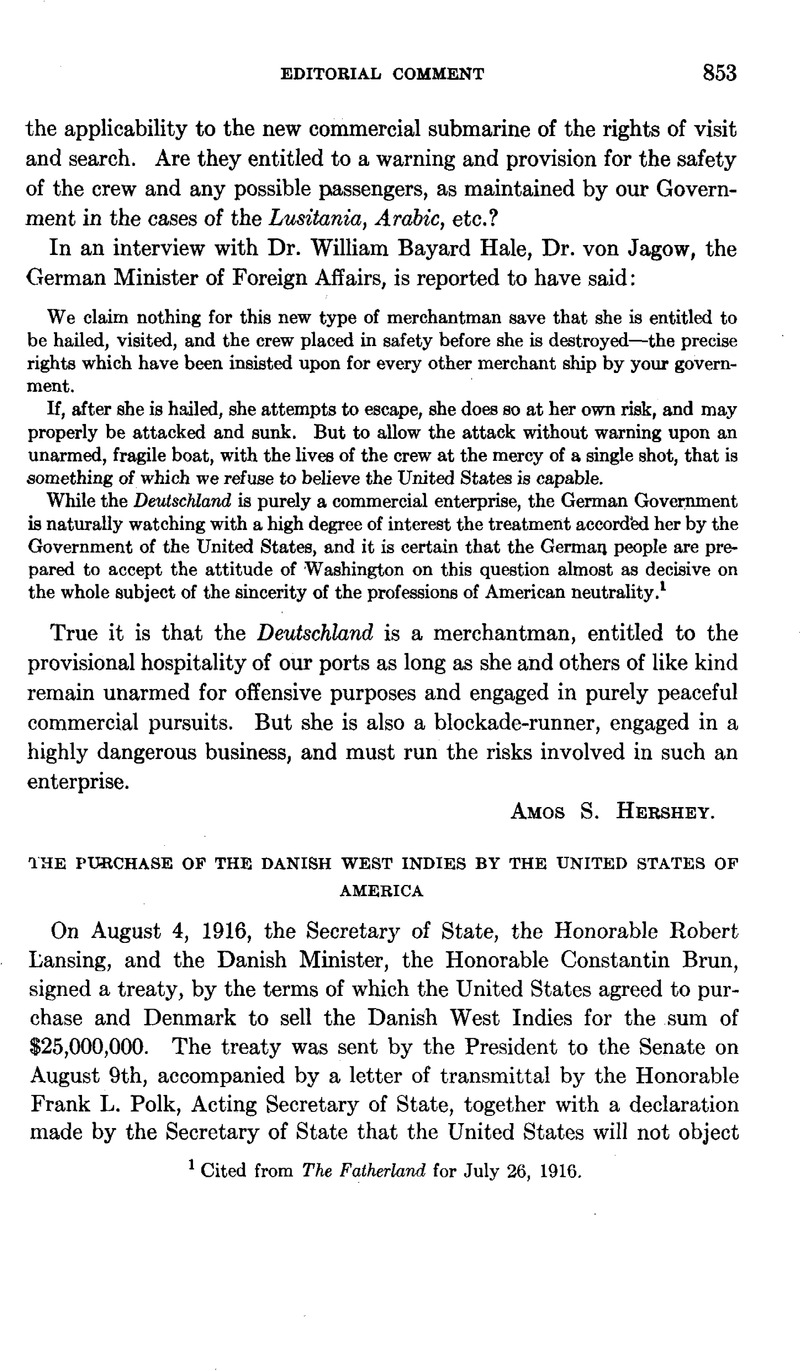Published online by Cambridge University Press: 04 May 2017

1 John, W. Foster’s American Diplomacy in the Orient, 1903, p. 135 Google Scholar.
2 Denmark was especially anxious to have the islands vote upon the cession because it hoped that a vote of the inhabitants of Schleswig would, under the terms of Article V of the Treaty of Prague of 1866, result in the reacquisition of the northern part of Schleswig-Holstein, of which it had been dispossessed by Prussia and Austria two years previously. Article V of the treaty provided that “the populations of the North of Schleswig shall be again united with Denmark in the event of their expressing a desire so to be by a vote freely exercised.”
But the Dane was doomed to disappointment. This provision was a sop to Napoleon III, the high priest of the plebiscite; it was not a promise made in a treaty with Denmark, but in one to Austria, and it was abrogated with the assent of Austria in the Treaty of Vienna of October 11, 1878.
3 Eugene Schuyler’s American Diplomacy, 1886, pp. 23–24.
4 Crandall’s Treaties, Their Making and Enforcement, 2nd ed. 1916, p. 332.
5 Senate Executive Report No. I, 57th Congress, First Session.